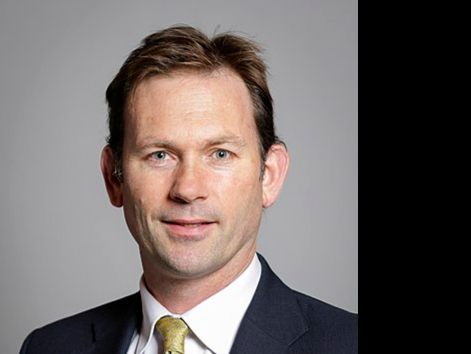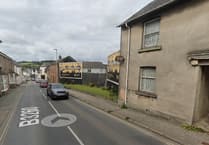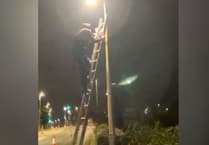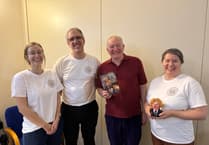Chagford residents grilled politicians on Friday night (September 2) when BBC Radio 4’s discussion programme Any Questions broadcast live from the town’s church.
Forest of Dean MP Mark Harper, TUC general secretary Frances O’Grady, Charles Courtenay Earl of Devon, and Luke Pollard, MP for Plymouth Sutton and Devonport tackled questions from housing to the environment over the course of the 50 minute show.

As a housing crisis continues to affect the South West brought on by a growth in second homeownership in the region and a growing financial incentive for landlords to invest in airbnb properties rather than long-term rental contracts, panellists told the audience of their views and suggestions for ways to tackle the crisis.
Frances O’Grady described home ownership as a ‘dream’ for many young people across the country, while Charles Courtenay admitted to a lack of working age people in the region.
Meanwhile Mark Harper described the necessity for ‘grown up conversations’ to solve the crisis while Luke Pollard emphasised the need to focus on providing first homes for local people.
Mr Pollard said: ‘I think they should quafdruple council tax on second homes so there’s an economic drive to actually using them. They should licence second homes as airbnb so we know how many there are and make sure they’re all paying the right tax because so many of those businesses are sadly evading their fair share of tax, not contributing to communities.
‘I also think we need to make sure these communities are not going to slowly die, so we need to make sure that housing is genuinely affordable which means more homes and, importantly, make sure those homes are reserved in the first instance to first time buyers in the local community, not simply snapped up online as holiday cottages.’
Panellists then turned towards a discussion on the energy crisis and how the government should invest in ways to improve the energy efficiency of homes and businesses.
This comes as the cost of living crisis continues to worsen with household energy bills set to rise to up to about £3,500 from next month.
Mr Courtenay described long-term investment in energy as ‘absolutely crucial,’ highlighting the need to retrofit old homes as well as building more energy-efficient houses.
Ms O’Grady turned towards the ever-increasing effect of climate change on the country and suggested nationalising energy companies as a solution to the energy crisis.
She said: ‘I think we’ve all been hit by the way in which extreme weather events are impacting our society. We are going to have to climate proof, we’re going to have to reduce energy — that will take big investment at the level of our own homes to right across our economy. I think it’s time that we seriously considered the greatest efficiency of all which would be taking those [energy] companies into public ownership.’
However, Mr Harper pointed out that it was the extraction companies that were making the money rather than the energy suppliers, adding that he was ‘pleased that we did put a windfall tax in place’ and were using those resources to fund energy support packages.
Mr Pollard advocated for a freeze on energy bills at the current £1,900 price cap to ensure people could afford to heat their homes during the winter and explained Labour’s long-term plan to invest in increasing the energy efficiency of homes.
In a rural community land usage was no doubt going to be a topic of interest and an audience member challenged panellists to consider what the best use of high quality farmland should be.
All panellists agreed that the country’s land was currently under immense pressure and highlighted food production as a major priority.
Mr Courtenay said: ‘We’re being asked to provide renewable resources, we’re being asked to provide access and care and health and wellbeing, we’re being asked to provide carbon sequestration and we’re also being asked to provide food for the whole nation in an increasingly compressed market and it is just far too much...But people don’t seem to understand the huge demands that have been placed on our landscape and the huge cost of that because farmers are going out of business left, right and centre.’
Meanwhile Mr Harper said: ‘It should definitely be food, and we should make sure that we have food security. I think post-pandemic and with what’s happening in Ukraine, people are now understanding that actually being more self-sufficient in food is very sensible.
‘So we should try and make sure farmers can produce food profitably.’
Ms O’Grady and Mr Pollard echoed Mr Courtenay and Mr Harper’s views with Ms O’Grady saying that ‘there needs to be respect for the role of land stewardship and the fact that people in our rural areas feed the country’ and Mr Pollard stating that there needs to be better food security and calling on politicians to ‘back our British farmers.’
Panellists also discussed the ongoing strikes and how the new prime minister should garner the support of non-Conservative members.
On Monday (September 5), it was announced that Liz Truss had been voted in as the next prime minister.





Comments
This article has no comments yet. Be the first to leave a comment.